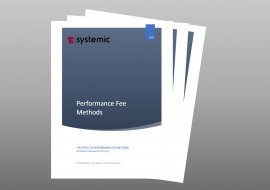CRS - the New Reporting Challenge

The Common Reporting Standard, or CRS, is a new mechanism developed by the OECD to combat tax evasion by exchanging financial information between tax authorities of all participating jurisdictions. Practically all Financial Institutions are affected, so they are required to report to their tax authority information about reportable account holders, investments and revenue earned. Early adopter jurisdictions are already reporting since March 2017, others commence this month (September 2017).
Local tax authorities will, in turn, forward such information to the account holder’s tax residence. In order for the various regulators in different countries to be able to process and use such information, it obviously needs to follow a standardized format, hence the CRS.
Such a mechanism is not completely new. Actually since 2010 all Banks have been required to report to the U.S. administration similar information relevant to the accounts held by U.S. persons (FATCA). The reporting burden was significant, to the point that certain banks around the world decided to close the accounts of many U.S. persons in order to avoid such responsibility! With the application of the CRS however, the burden is expected to become much more significant for European Financial Institutions compared to FATCA:
- More types of Financial Institutions and accounts fall under the reporting scope
- European Financial Institutions will typically need to report on the largest part of their customer base.
Is my company liable for producing CRS Reports?
If your company/ branch is a Financial Institution and tax resident in any participating jurisdiction (practically all European countries and many more signatory countries), then yes you need to report to your tax administration! Affected Entities include Depositary and Custodial Institutions, Investment Entities and specified Insurance Companies (most life insurance companies). Reporting has already started in early adopting jurisdictions, and will start very soon in many others.
Which accounts do I need to include in CRS reporting?
All financial accounts held or controlled by reportable persons need to be reported, including checking and savings accounts, custodial accounts, equity and debt interests, cash value insurance contracts and annuity contracts.
Reporting takes place by virtue of the account holder if he is a reportable person (i.e. a tax resident in any participating jurisdiction) or by virtue of the controlling persons if the account is held by a passive non-financial entity (i.e. entities that receive passive income such as dividends, interest, and rent).
What are my responsibilities in determining the address of my account holders and controlling persons?
This is a tricky part of CRS exercise, and a very important one as it forms the basis to decide if an accounting holder or controlling person constitutes a reporting person. Therefore specific due diligence procedures are required:
Firstly, you need to review the addresses of all existing accounts. This procedure depends on the size of each account:
- Lower value accounts (balance under $1 mln) have less stringent due diligence procedures. For these accounts you may just apply the so called residence address test as defined in the EU Savings Directive. In such cases the address is based on documentary evidence largely consisting of government issued documentation.
- For higher value accounts, the above residence address test is not sufficient. If you have such accounts you need to look for various indicia (electronically or through paper search!) providing evidence that the account holder/ controlling person might in fact be resident in a reporting jurisdiction. Such indicia include mailing addresses, telephone numbers, standing instructions to transfer funds to a reportable jurisdiction, use of power of attorney/ signatory authority in a reportable jurisdiction, “hold mail instruction” or “in care of” address, and others.
For new accounts, you will need to carry out a self-certification exercise collecting relevant informations such as tax residence and Tax Identification Number (TIN). In addition, you will need to confirm its reasonableness based on other information obtained for example via the AML/KYC procedures.
What are the steps involved in CRS Reporting?
If you are a reporting Financial Institution, you need to observe the following sequence of actions:
- Review all Financial Accounts you maintain and classify them from a CRS point of view to decide if they are in principle subject to CRS reporting.
- Perform two tests on each account, one by virtue of the account holder and one by virtue of the controlling persons of passive non-financial entities, to determine if they belong to a reportable tax jurisdiction.
- Apply appropriate due diligence procedures depending on the value of each account to make sure you have the right residence address.
- For each account, collect appropriate Identification Information, Account Information, and Financial information as prescribed by your CRS guidelines.
- Transcribe the above information in electronic XML files according to a predefined XSD schema. Minor variations might appear between different national XSD schemas.
What technology do I need to perform CRS reporting?
It is possible that the technical aspects of CRS will be handled by the core IT system that you are already using. This is fine, but you need to make sure that they will be ready when your own reporting deadline arrives as the reporting responsibility is ultimately yours, not your vendor’s! We have seen in the past that it might take one or more years for some vendors to become fully compliant with new regulations. Also, most vendors will probably charge extra for this until it ultimately becomes part of their core functionality.
In other situations it may make more sense for you to use a third party independent system for CRS reporting. The functionality offered by such systems may vastly differ:
In the simpler cases the CRS system may handle only the transcribing of data that you collect manually from your own sources, into the XML format required by regulation. This low-cost solution has been used by smaller financial institutions for FATCA, however it is not recommended for CRS for at least two reasons:
- The much larger reporting volumes require a more robust technological background.
- Confidentiality: Don’t forget that you will be reporting critical information on the largest part of your customer base. You certainly need to avoid that such information reaches the eyes of your competitors!
A more elaborate solution is a system offering proper storage and auditing capabilities to collect information from your various sub-systems in order to prepare your CRS reporting. Such a system would offer substantial benefits:
- Historical maintenance of classification information and of reported data provides robustness against any future compliance control
- Auditable
- Allows consistency checking of reported data (date of last account revision, % of reportable accounts in year X, …)
- Dual control in all critical entries
In any case you need to make sure that you will have the right solution in place, taking under account the size and complexity of your organization and customer base. For sure, you cannot risk being non-compliant is this important regulatory matter.
Read Also

Positive performance is the desirable outcome of all investment decisions. A properly structured performance fee measurement model should align the interests of the manager and the shareholder. In this context, the timely and accurate calculation of performance based charges has become a prerequisite for regulatory compliance and for the fair fee attribution among investors.

A web environment through RiskValue™ to manage the communication between administrators, investment managers and investors.

Investment administrators face the challenge to address the need of investment managers and investors for a comprehensive presentation analysis of portfolio returns through a well-structured and controlled environment.

Fund Administrators need to be multi-competent for assuming a much broader role than traditional fund accounting and transfer agency, by supporting multiple functions within risk & portfolio management and compliance.


















